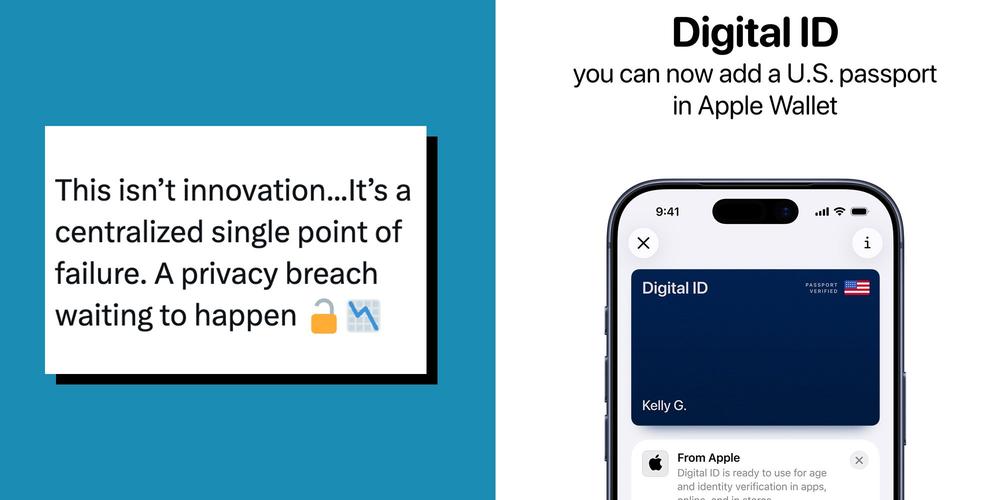Apple’s newest iPhone update introduced a tool that lets users upload their U.S. passport details into Apple Wallet for domestic air travel. The “digital ID” feature promises faster screening at participating airports, and it is arriving as Apple pushes deeper into digital identity services. Although many travelers welcomed the option, critics reacted with suspicion.
Featured VideoApple’s new “digital ID” feature
The Transportation Security Administration (TSA) confirmed that 11 states and territories allowed Apple Wallet IDs at select airports. Those locations included Arizona, California, Colorado, Georgia, Hawaii, Iowa, Maryland, Montana, New Mexico, Ohio, and Puerto Rico.
AdvertisementApple framed the passport upload option as another step toward convenience. The company insisted the feature was secure, yet privacy researchers expressed reservations.
Experts warned that digital credentials carried inherent risks. Storing sensitive data on a phone made it more vulnerable to hackers and surveillance.
Some specialists feared that stolen digital IDs could lead to identity theft or other forms of fraud. The Center for Democracy & Technology said digital IDs designed for airports could “eventually be required for other activities like employment, shopping or paying bills.”
The group also cautioned that companies could match IDs to consumer databases and track behavior.
AdvertisementDigital passports raise questions about privacy, surveillance, and who gets left behind
Evan Greer of Fight for the Future offered a blunt assessment to NPR. “This just strikes me as the latest example of where they’re trying to weave themselves into more and more aspects of our lives,” Greer said.
“And when Apple becomes kind of indispensable, it truly is too big to fail.” Elizabeth Renieris at Stanford agreed that the feature saved time. However, she warned that it turned “every instance in which we show our ID into a business opportunity.”
Privacy advocates described broader consequences. The ACLU released a report noting that “statutory protections against such searches—already needed—will become even more vital if people’s smartphones are to become a central and routine part of interactions with law enforcement.”
AdvertisementResearchers also pointed to access issues. Studies showed that many older adults and lower-income people lacked smartphones. According to the ACLU, a digital ID requirement could “further disadvantage marginalized communities.”
Meanwhile, social media users reacted with humor and frustration. @FringeViews wrote, “Listen, there are many types of Digital ID. The one I’m worried about is the one that can link your location, your browsing history, your bank accounts, your phone calls, texts, emails, ID etc.” X user @Proteus_xmr asked, “How long before this ‘optional’ feature spreads everywhere, then suddenly becomes mandatory after some convenient crisis ?”
@MynardPamela said simply, “Nope! No thanks.”
Advertisement“Digital ID isn’t coming from government,” wrote @FringeViews. “It’s coming from corporations. From a SMARTPHONE maker to be exact.”
Meanwhile, @garypalmerjr wrote, “This is not just airport travel unlocking gates…You’re handing your sovereign identity to a single corporation that already facial-scans, geo-tracks, and gatekeeps your digital life…One glitch. One subpoena. One breach. Game over.”
“This isn’t innovation…It’s a centralized single point of failure. A privacy breach waiting to happen.”
AdvertisementOthers cracked jokes. @TheGlobal_Index said, “Going to upload so I can get my identity stolen with a data breach.”
Several users dismissed the feature entirely. @diamondswet999 said, “yea, im good. not giving my passport data to apple or any company for that matter.” Another warned, “‘what will remain of your freedom will be limited […] There will be no coming back from it.’”
Advertisement
 Apple iMac con Chip M4 in offerta: risparmia 330€ subito
Apple iMac con Chip M4 in offerta: risparmia 330€ subito